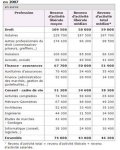- Joined
- Dec 13, 2015
- Messages
- 9,594
- Reaction score
- 2,072
- Location
- France
- Gender
- Male
- Political Leaning
- Centrist
HUNGRY MOUTHS
You are rambling.
The greater the market-economy, the more latitude it is given to produce jobs and thus employ people gainfully. If the US is any example, though smaller than the EU in population size, it is larger in GDP per capita though the gap is shortening:

GDP per capita, I submit, translates into "well-being"; and that is a factor that is not sufficiently well debated in economics.
Regardless, it feeds hungry mouths - and, until we figure out a better way of achieving that simple fact with the present market-economy structure, then we are wedded to it ... !
________________________
And do you think the shift of power from the national to international power is harmless? On the other hand I think power should be as close as possible to the individual while you insist of systematically moving it away from the individual, to entrust it to people with different cultures and interests than the ones they are supposed to represent. By moving this power away you disempower individuals. In the name of what? What justifies this sacrifice?
You are rambling.
The greater the market-economy, the more latitude it is given to produce jobs and thus employ people gainfully. If the US is any example, though smaller than the EU in population size, it is larger in GDP per capita though the gap is shortening:

GDP per capita, I submit, translates into "well-being"; and that is a factor that is not sufficiently well debated in economics.
Regardless, it feeds hungry mouths - and, until we figure out a better way of achieving that simple fact with the present market-economy structure, then we are wedded to it ... !
________________________
Last edited:

